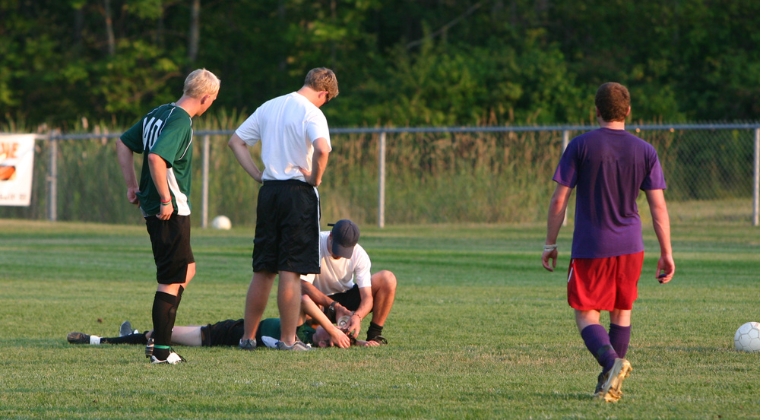The Power of Nutrition for Concussion Recovery
In your role as health and nutrition experts, you wield a pivotal influence in guiding individuals through the recovery journey following concussions. Let’s explore the nuanced link between nutrition and concussion, equipping you with valuable insights to support your clients on their path to recovery.
Understanding the Impact:
The brain, which is suspended in cerebrospinal fluid, is highly vulnerable when a concussion occurs. Whether it’s a forceful blow to the head, a fall, or an impactful hit to the body causing ‘whiplash,’ the consequences can be extensive. This damage can result in a cascade of ionic, metabolic and pathophysiological events.
The process of concussion is affected by accompanying inflammation, neuronal damage, and metabolic shifts, resulting in a spectrum of symptoms.
The Manifestation of Concussion Symptoms:
Contrary to popular belief, only 10% of concussions involve loss of consciousness, and concussion can happen even without a head knock. When it comes to supporting your clients, recognizing the subtleties of symptoms is paramount:
- Confusion & trouble focusing
- Dizziness, vertigo & imbalance
- Headache
- Nausea and vomiting
- ‘Seeing stars,’ blurred or altered vision
- Sensitivity to light, noise & screens
- Drowsiness
- Temporary memory loss
- Heightened anxiety, sadness, and emotional fluctuations
- A blank or vacant look
Symptoms typically manifest immediately or within the first few hours post-injury. However, asymptomatic concussions can happen. Even if an athlete claims to feel fine, caution should be taken, and engagement in sports must be avoided if a concussion is suspected or diagnosed. When working in sport, an athlete’s team of healthcare professionals, especially the Sports Doctor, plays a pivotal role in orchestrating the recovery and return-to-play process.
Our Pivotal Role in Supporting Athletes:
As a Nutrition professional, you play a critical role in supporting clients through navigating not only the clinical but practical elements of navigating concussions. You should consider that concussion can severely impact on an individual’s wellbeing and their ability to make changes, especially due to potential sensitivity to light, lack of access to screens to find information and to communicate virtually (especially if they’ve been recommended to rest, avoid bright light and/or avoid reading), they may have difficulty staying awake or find it challenging to concentrate or make decisions. Concussion can also exacerbate or flare up disordered eating as well as cause nausea and gut disturbances.
When developing a nutrition plan for concussion management, ensure that you are encouraging easy, enjoyable and obvious strategies to assist the individual to meet their needs and focusing on symptom management, nutrient-rich diets with a food-first philosophy and helping your clients navigate the logistics, optimize the nutrition foundations and consider low risk supplement options with a high potential for reward.
This can potentially aid in:
- Anti-Inflammatory and Cognitive Function Support: Emphasize the importance of foods rich in omega-3 fatty acids, antioxidants, and anti-inflammatory properties.
- Hydration: Encourage optimal water intake to aid overall recovery.
- Mood Stabilization: Address emotional fluctuations with nutrients like magnesium, B-vitamins, and omega-3s.
Click the link below to sign up to Compeat Academy to unlock the nitty-gritty essentials of concussion management – the pathophysiology and recovery timeline of concussion, specific nutrition strategies and supplements to consider. You’ll also get client resources as well as an expert live session discussing all things Concussion management with Exercise Medicine Physician Dr Brandi Cole and Triathlete Em Johnson, offering first hand insights! Fuel the journey of concussion recovery with your expertise.



